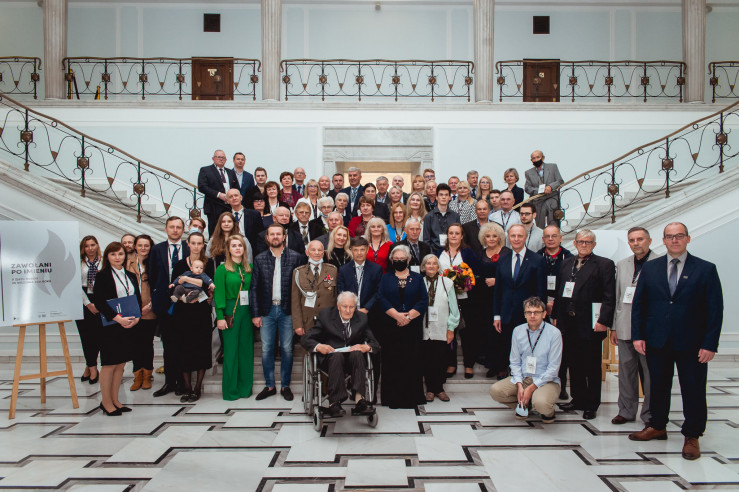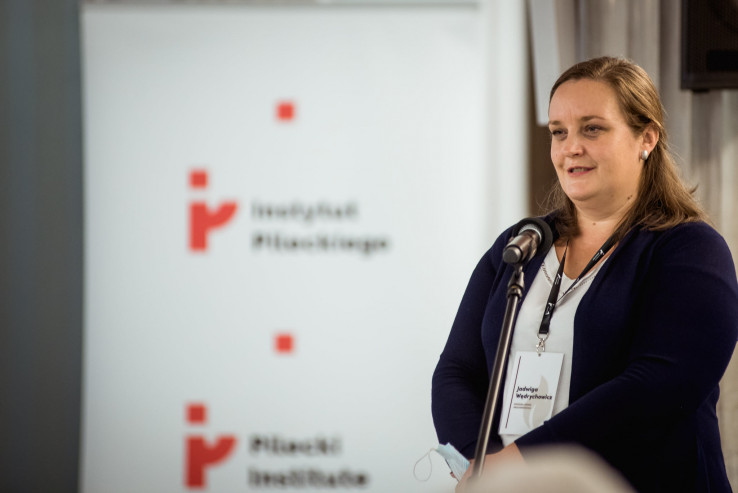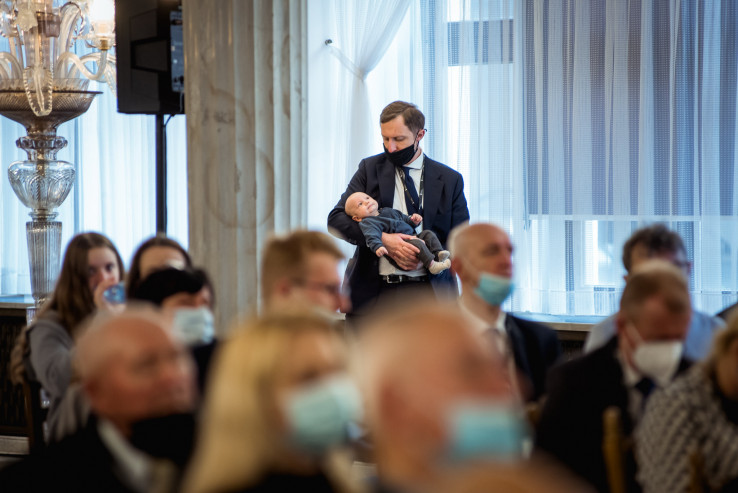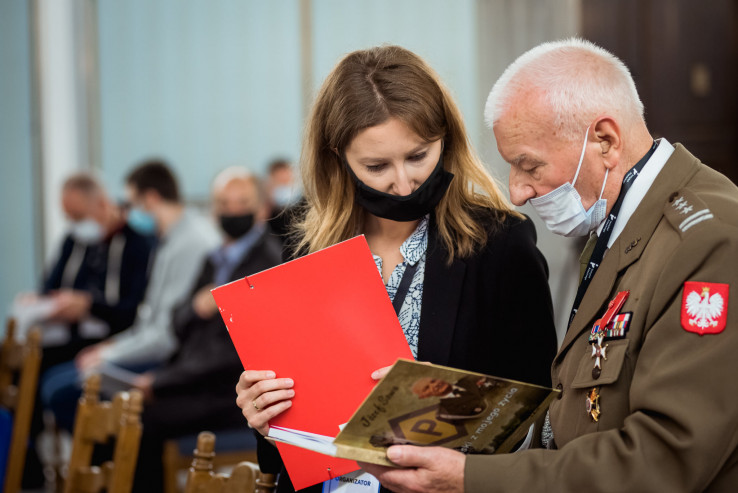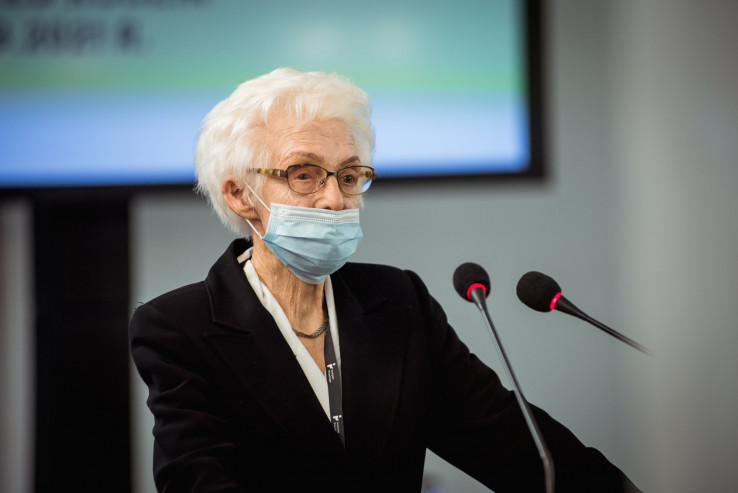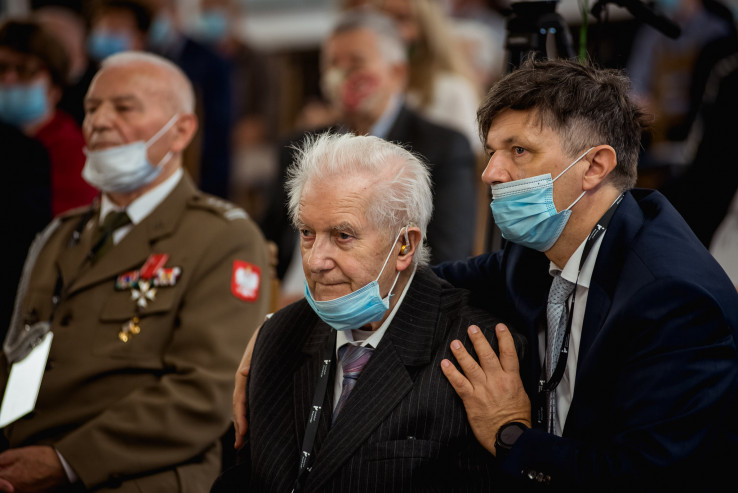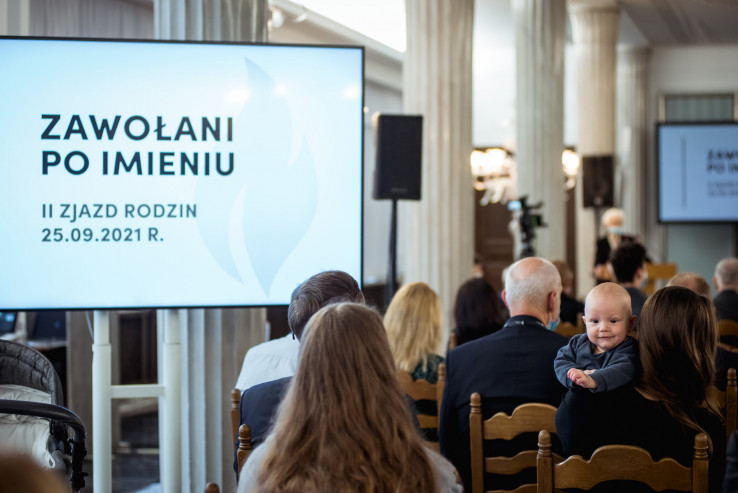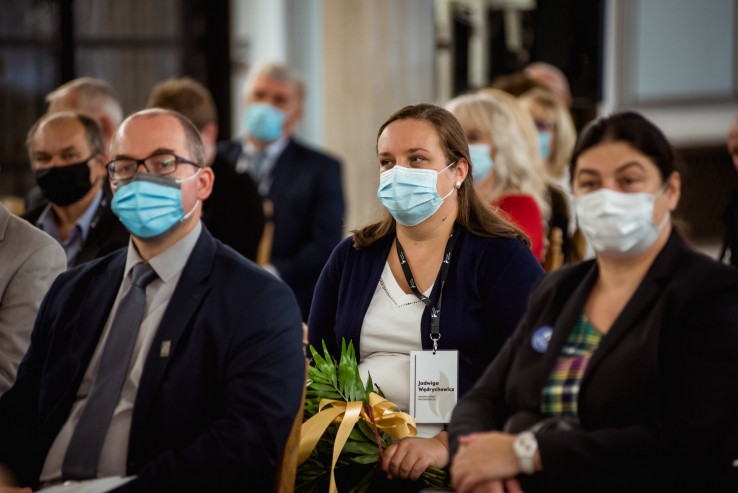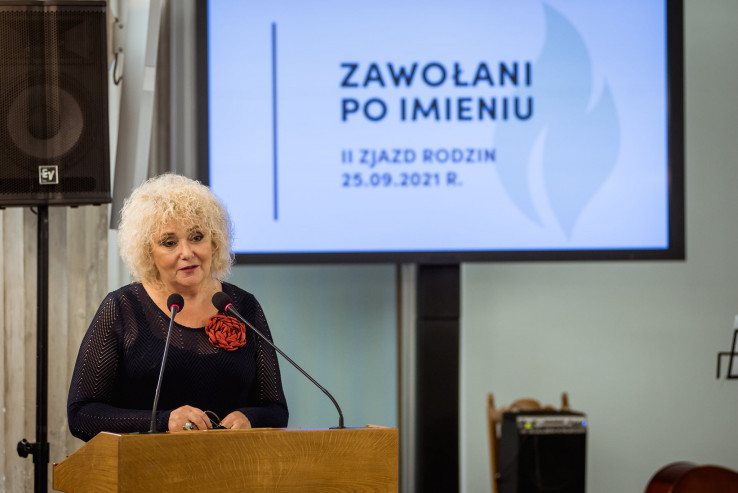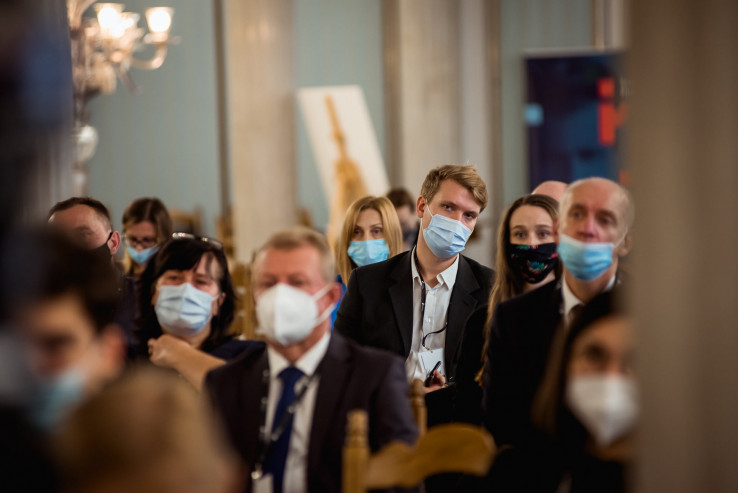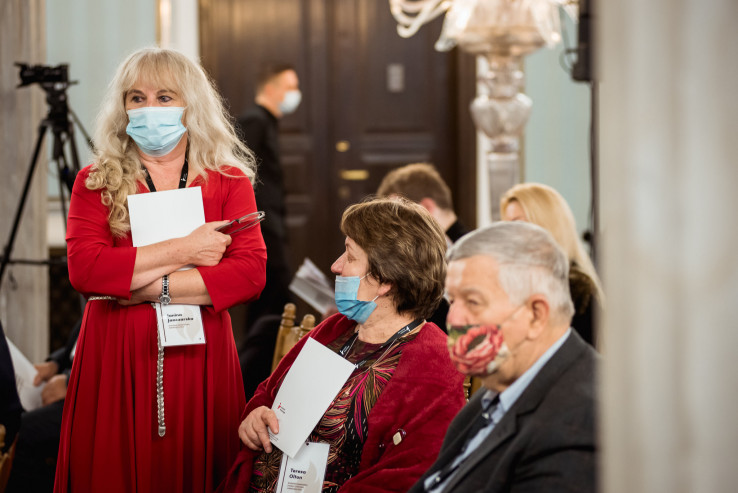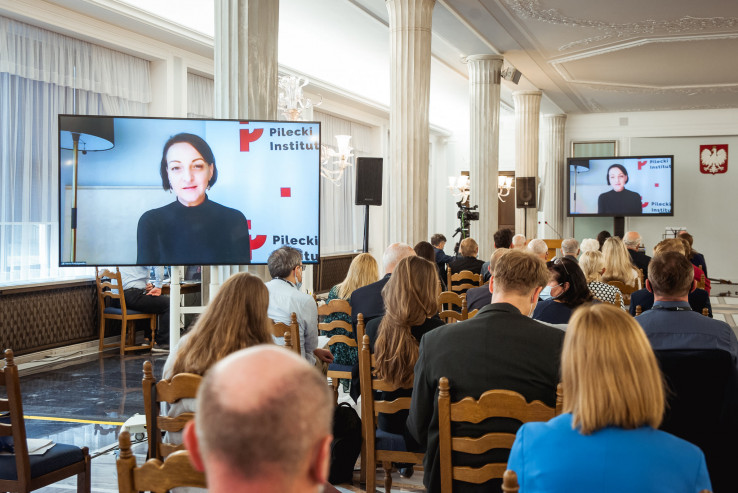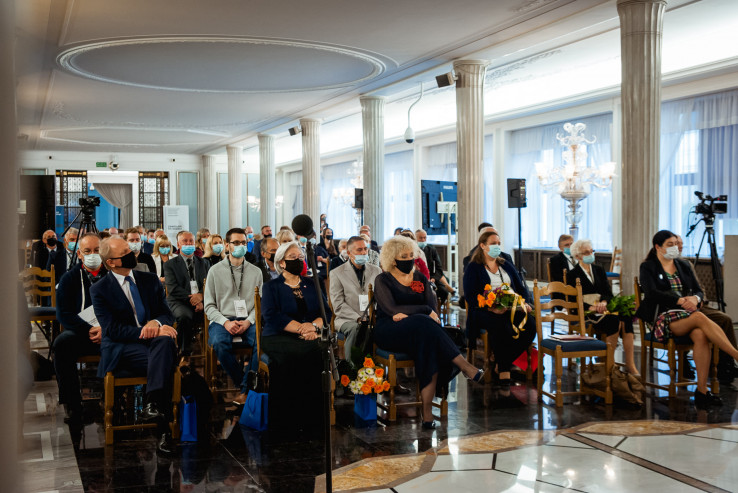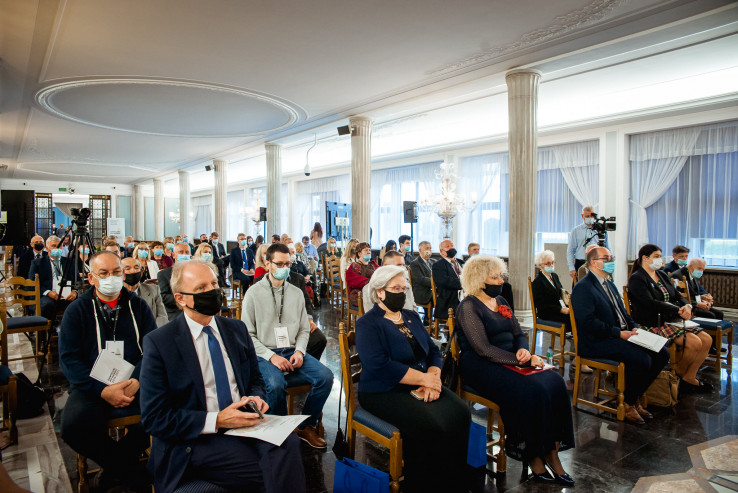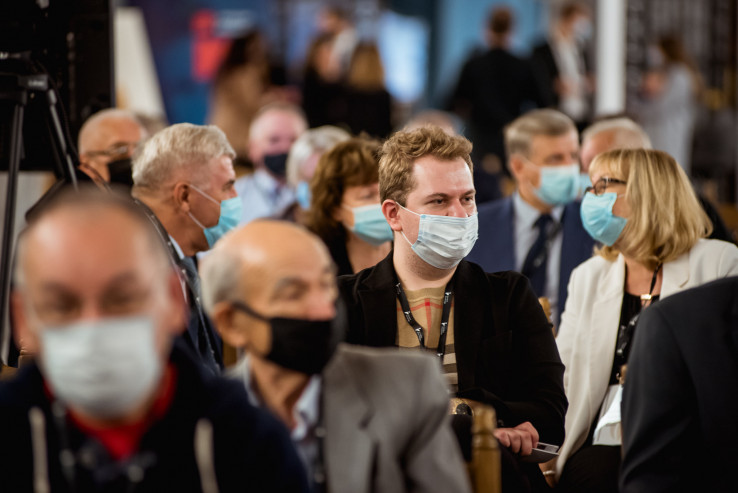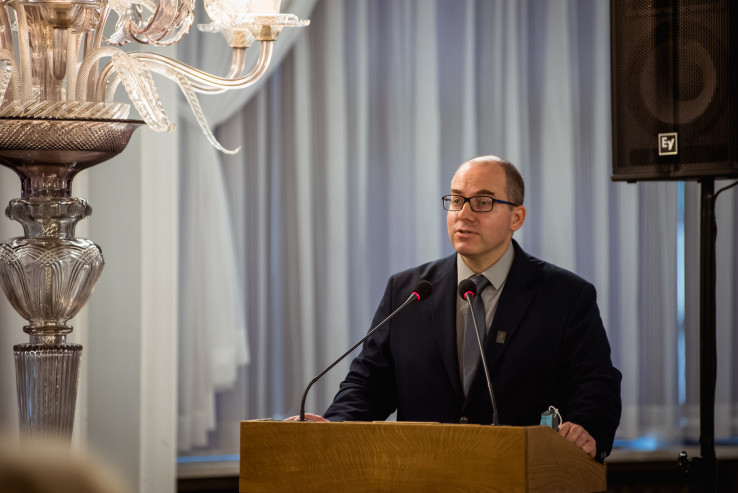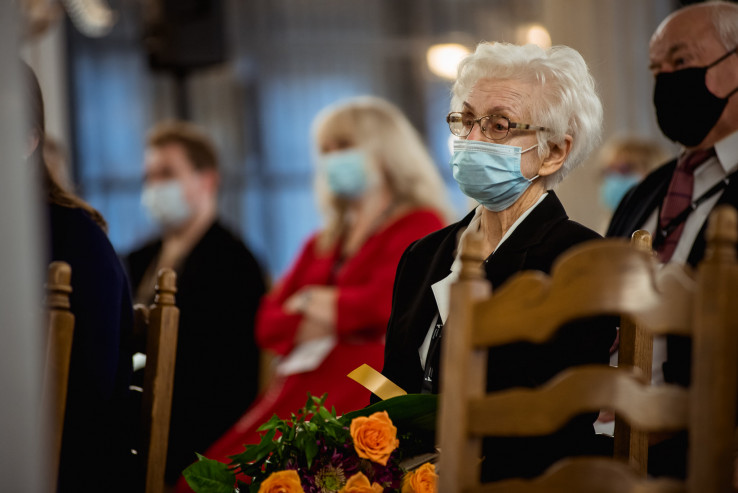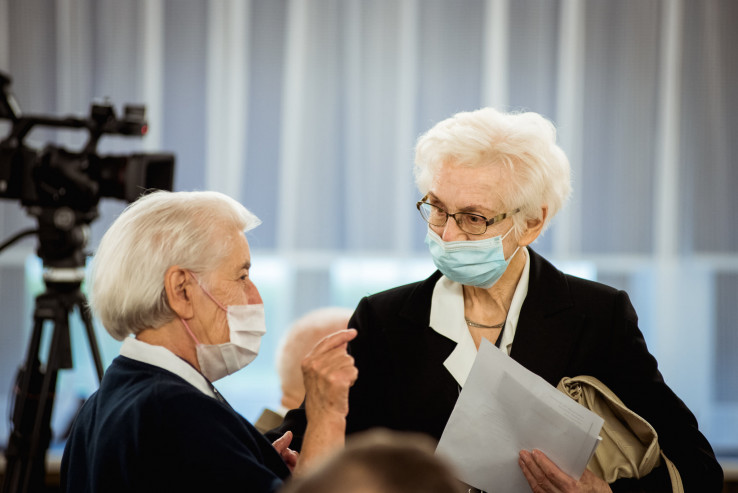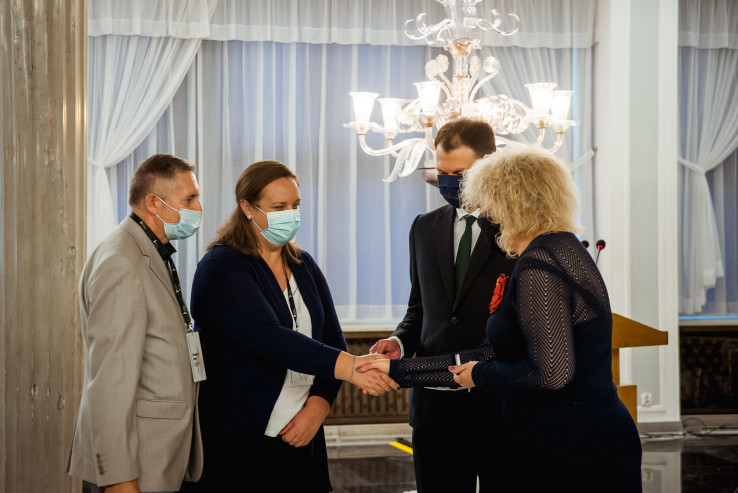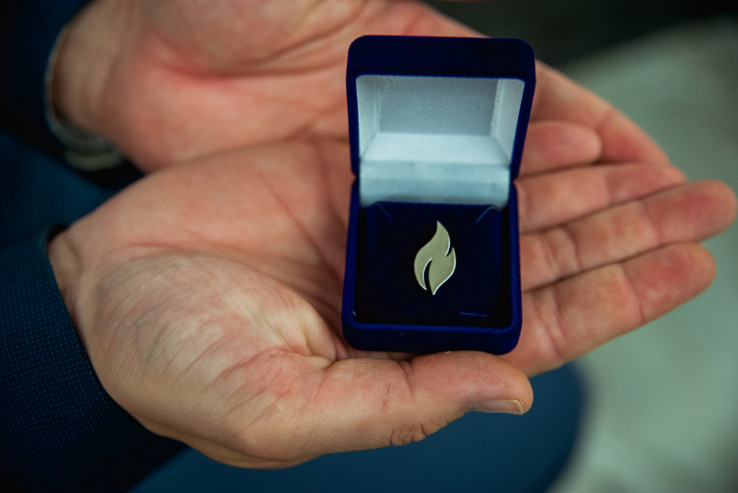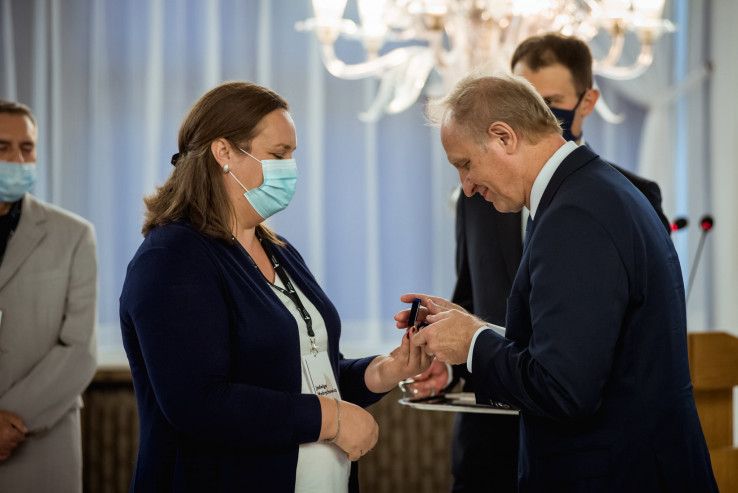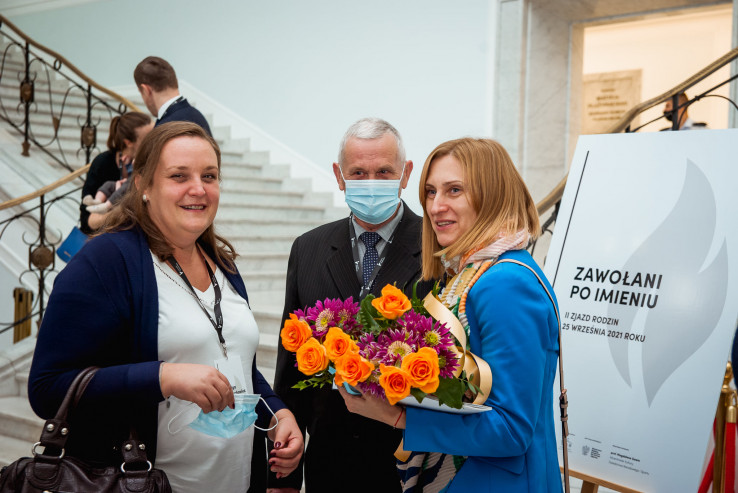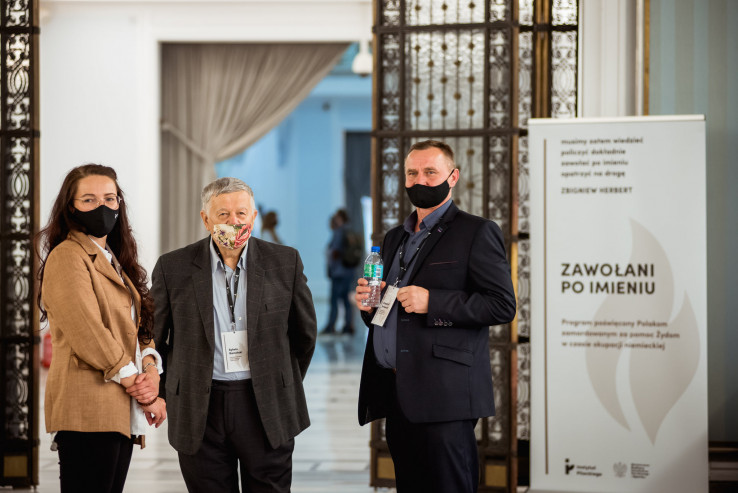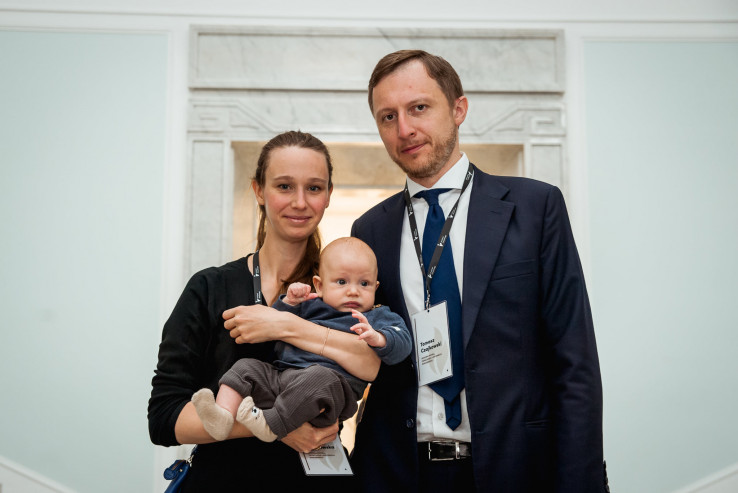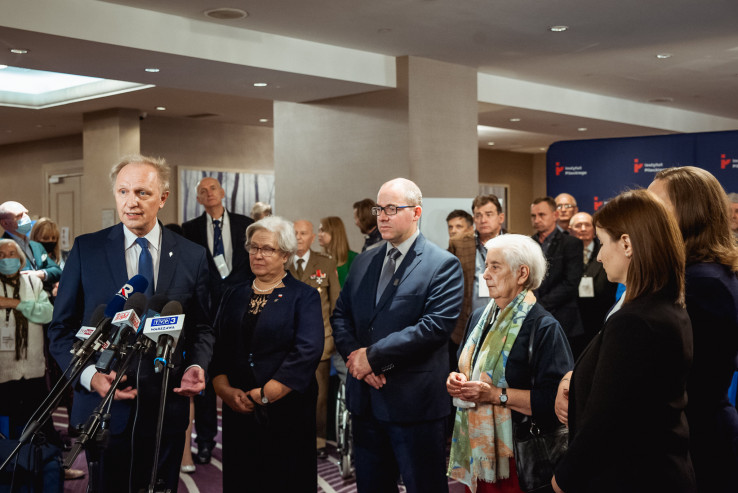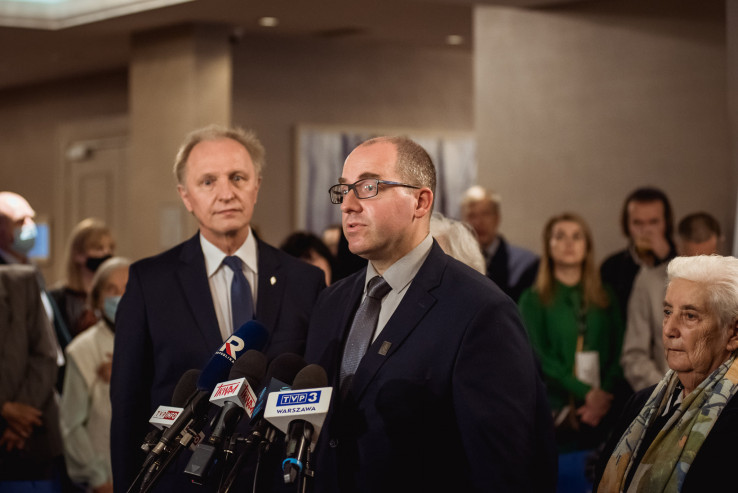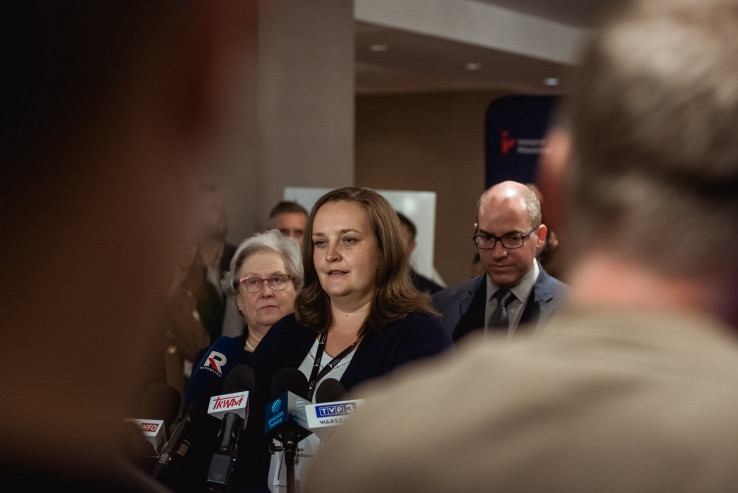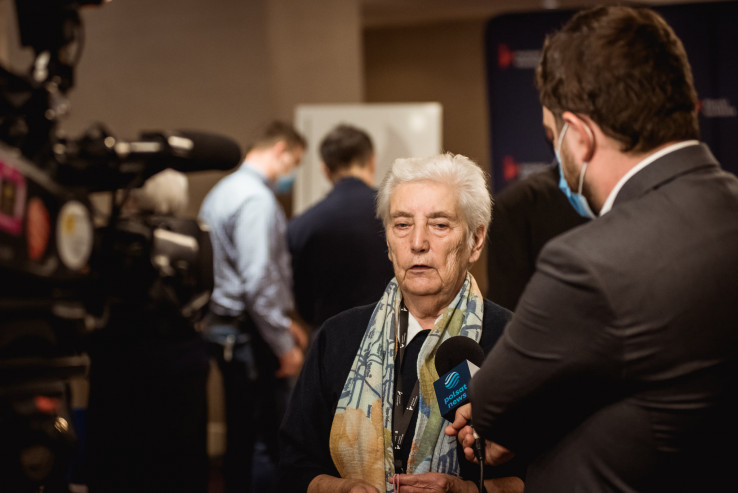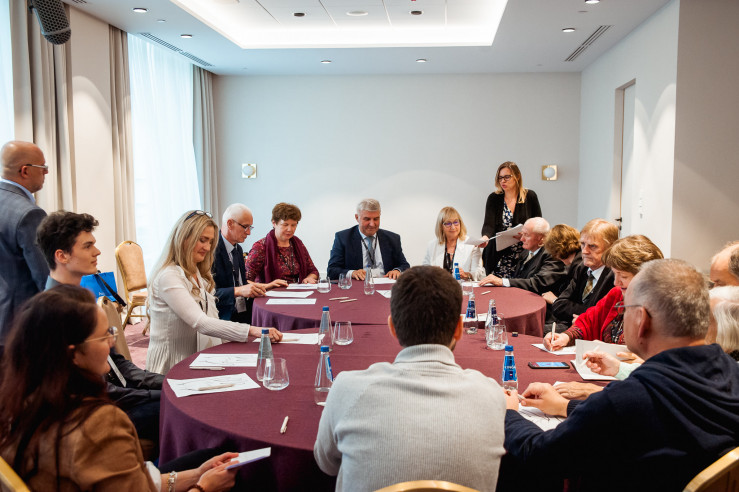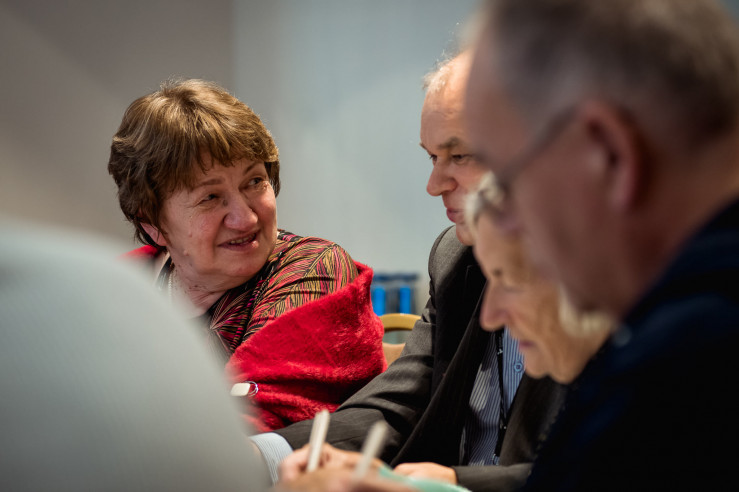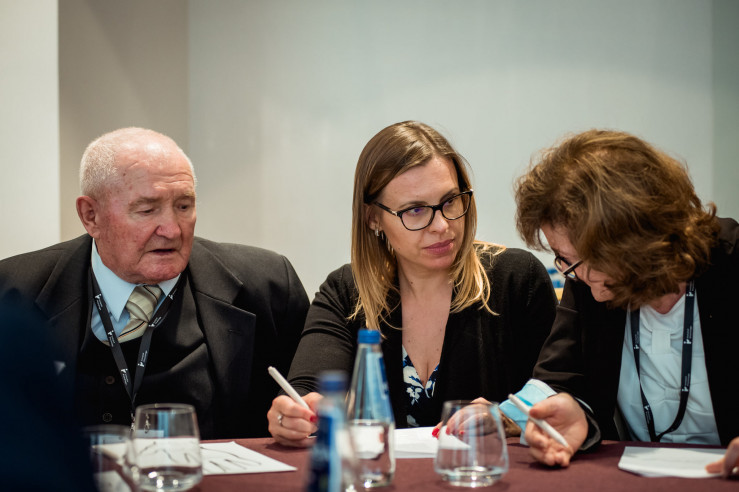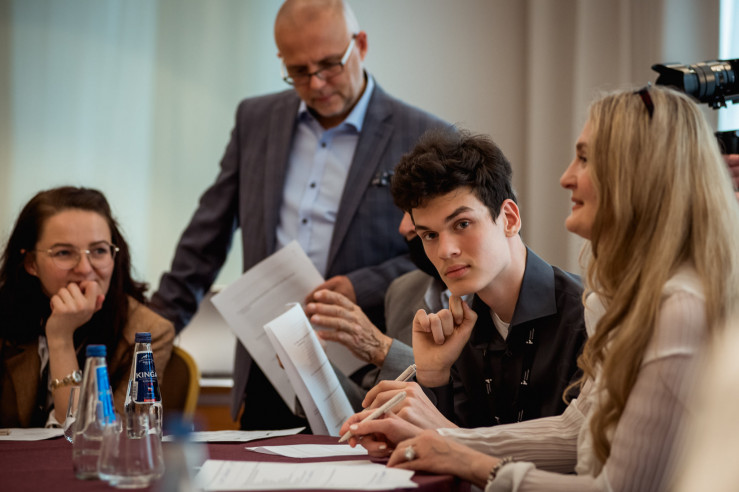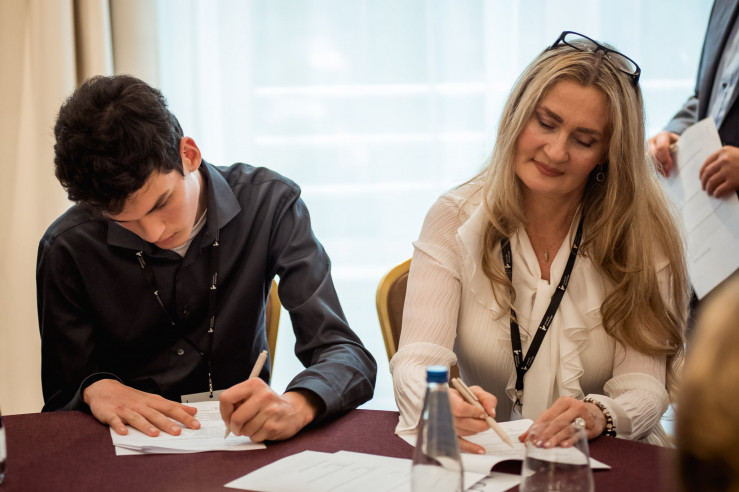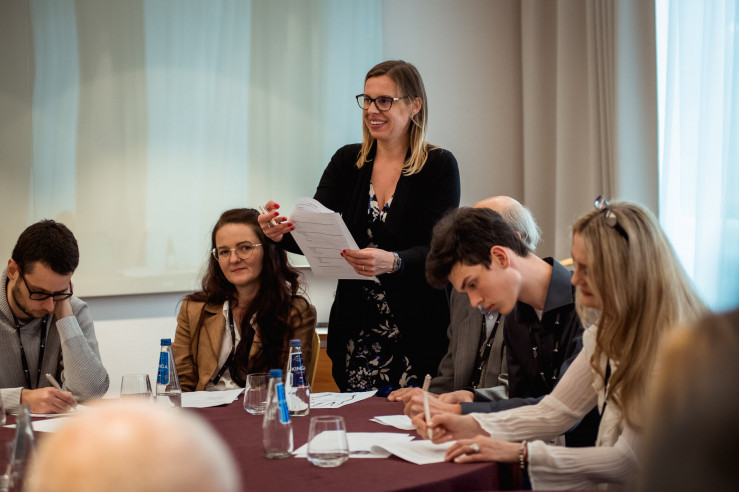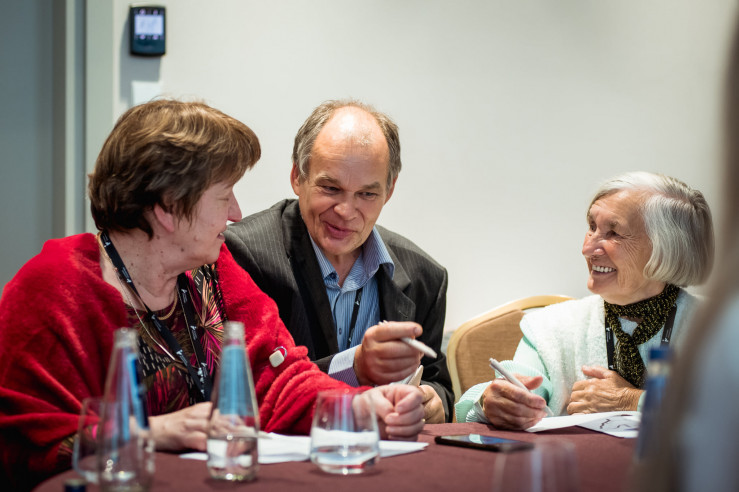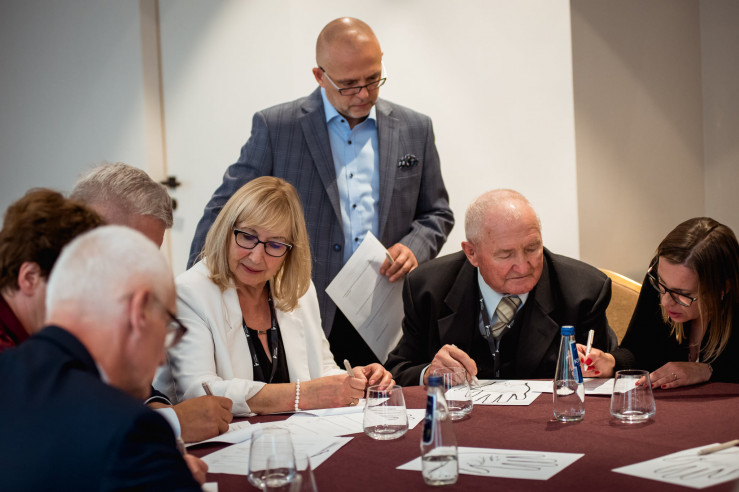The 2nd Meeting of the “Called by Name” families - Instytut Pileckiego
The 2nd Meeting of the “Called by Name” families
The second meeting of the families of those “Called by Name” – people murdered during the Second World War for aiding Jews – took place on Saturday 25 September in Warsaw.
Participants met with politicians at the Sejm, the lower house of the Polish parliament, visited the exhibition dedicated to the project and attended integration workshops with psychologists.
One of the goals of the “Called by Name” project is to draw attention to the family members of the victims who bore and often continue to bear the consequences of the heroic choice made by their parents, grandparents, and siblings. Many of them were orphaned; some were eye witnesses of the tragic deaths of their loved ones. Representing all generations (Eugeniusz Sowa, the oldest participant, is 92 years old, while the youngest, Jaś, is only 3 months), the families of the “Called by Name” met with politicians associated with the Parliamentary Group for the Called by Name in the Column Hall of the Sejm. A letter to the participants of the meeting was sent by the Speaker of the Sejm, Elżbieta Witek, who assumed honorary patronage over the event. The Speaker wrote:
“(…) I value greatly the project of the Pilecki Institute devoted to Poles who were murdered for helping Jews during the German occupation. Thanks to this project, our national memory is preserved with the testimonies of the families of those whose actions, fates and words carry an ever-relevant message and example that are of paramount importance for the modern generation of Poles. This is a beautiful and extremely valuable mission.”
Representatives of two generations of the “Called by Name” families took the floor during the meeting. Jadwiga Wędrychowicz, the great-granddaughter of the “Called by Name” Józef Pruchniewicz, commemorated in Biecz, said:
“For years I did not know my great-grandfather’s story because it was a taboo subject. Fortunately the Pilecki Institute is restoring the memory of people who were not afraid to help others in difficult times. I am grateful that the Institute has restored this memory in Biecz, in the place where my great-grandfather lived, where he helped and where he died.”
Anna Radwańska, the daughter of the “Called by Name” Lucyna Radziejowska, commemorated in Ostrów Mazowiecka, witnessed the arrest of her mother when she was only a few years old:
“I personally experienced the event, which has brought us together here (…). I walked into the kitchen and saw an officer with a German cap and soldiers standing there. He asked the boy we were hiding: “Are you Jude?”. He answered: “Yes” (…). The soldiers took my mother to another room and told her to get dressed; she put on the best coat she had and left with the Germans without looking at me once. That was the end of my childhood. I would like to thank the Pilecki Institute and Minister Magdalena Gawin for this beautiful initiative, because I have not told anyone about what happened to me. I was not able to tell this story. It was only when the historians from the Institute came to me that I started to talk about it.”
Senator Maria Koc, the chairperson and initiator of the Parliamentary Group for the Called by Name, spoke on behalf of the Group. In her speech, she referred to Anna Radwanska’s remarks:
“Thank you very much for sharing this memory. Carrying dramatic stories is not easy. You talked about your mother, and it is difficult to talk about the terrible fates that our relatives met because they humanly offered aid, because they were humans, Christians. A person could have been murdered for sharing a slice of bread. We have a duty to remember this. Not out of revenge, but so that the truth will always speak for itself,” said Senator Maria Koc.
The participants were joined remotely by Prof. Magdalena Gawin, Deputy Minister of Culture, National Heritage and Sport, the initiator of the “Called by Name” project:
“I wish you wonderful workshops, meetings and conversations. The history of your parents and grandparents is part of the history not only of Poland, but also of Europe and the world. It is a warning for politicians never to allow impulses of humanity to be threatened with such cruel punishment,” said Magdalena Gawin. “Thank you that we are able to come together at the Polish parliament and talk about the actions of your ancestors. I hope that soon we will also be able to meet at the Pilecki Institute in Berlin and share your experience with generations of Germans, who must know, must discover the truth, even though they are not responsible for the actions of their grandparents.”
To conclude the meeting in the Sejm, Dr. Wojciech Kozłowski, director of the Pilecki Institute, took the floor:
“The pandemic has made it impossible for us to organize large congresses to show just how many people were affected by such tragedies. So far we have already organized 20 commemoration ceremonies to honor 49 people who saved over 100 Jews,” said Wojciech Kozłowski. “We need you, the families, because you have begun to speak about your fate – this is proof of the credibility of the ‘Called by Name’ project. You are part of this story. It may seem that everything is already known, but still we must discuss that which is most painful, which lays deep in your hearts, which tore those hearts apart. It is necessary to talk about it, to cherish this memory, to return to it. Thank you very much for this, and I ask you to persevere with us.”
After the meeting at the Sejm, the participants went to the nearby Sheraton Hotel, where they shared dinner and took part in an integration workshop that focused on the principle of collective responsibility applied by the German occupiers. The participants openly shared their experiences, feelings, and observations, being aware that difficult emotions are best understood by people with similar experiences.
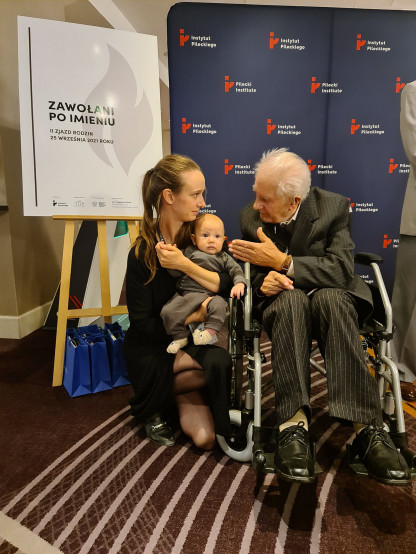
At the end of the meeting, the families wrote an open letter in which they referred to their own experiences to express their opposition to any form of collective responsibility, advocating that guilt – including for denouncing neighbors who hid Jews – should be treated on a case by case basis and not extended to a whole community or nation.
Open letter from the families of those “Called by name” as part of the 2nd Meeting of Families
Warsaw, 25 September 2021
We, the families of those “Called by Name”, Poles murdered by Germans for helping Jews, gathered at the 2nd Meeting of Families, would like to speak.
We are glad that the “Called by Name” project continues to function and develop, and that our community is being joined by new families from across the country that were otherwise forgotten and alone in their grief. It is a great joy that the stories of our parents, grandparents and relatives, their bravery and solidarity with people under persecution, are gradually becoming part of the common memory of the Second World War.
In the face of German terror, the actions of our loved ones were completely unique. We wish that no one experience the dramatic moral choice they faced. The righteous act of helping another human being in danger of death meant risking the life and health of one’s own family: wives, husbands, children. This decision was all the more difficult because it was made anew every day. For days, weeks, and even months – for as long as the threat persisted. Our families painfully experienced how real and tangible that threat was.
The Germans ruthlessly applied collective responsibility. In this way, they destroyed the local community, severed ties between neighbors, fueled distrust, and sought to alienate victims. Individual families and entire villages lived in constant fear and danger. Fear for loved ones and the uncertainty of the future were overwhelming. In view of this, the smallest gesture of help for Jews – every impulse of humanity – became a heroic deed.
Some of our loved ones, as well as the Jews they were hiding, were killed as a result of denunciation. Terror and fear brought tragic results. We emphasize, however, that denunciation does not hold all the inhabitants of a village or town responsible. It is an individual matter. We do not blame entire local communities for the deaths of our ancestors, much less all Poles. The victims and perpetrators are always specific, and we cannot stoop to collective responsibility.
At the same time, we remember that the responsibility for creating an area of violence and lawlessness in occupied Poland lies with the Third Reich. The German perpetrators – the direct murderers of our loved ones and the Jews they tried to save – have for the most part escaped punishment and remain anonymous to this day.
We are aware that there are still families in Poland who faced experiences like ours. We encourage them to contact the Pilecki Institute. Let us “Call them by Name”, because those heroes deserve our memory!
